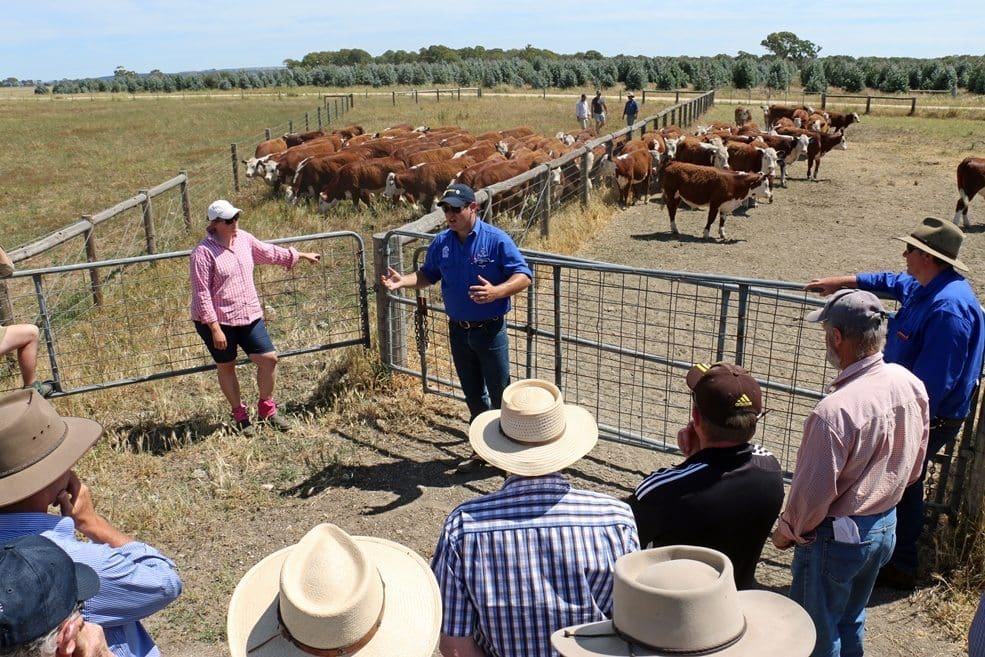
Cattle vet Dr Lachlan Strohfeldt takes producers through handling techniques at a weaner acclimation field day
THE Australian Veterinary Association has backed calls for a series of measures to urgently address workforce shortages in regional and remote Australia.
AVA’s calls have followed the release of the Regional Education Commissioner’s Fiona Nash’s annual report, which said a shortage of vets needed to be addressed immediately. It said the Government should consider:
- HELP fee relief to encourage early career veterinarians to work in rural areas
- Changes to admissions processes to ensure places for students with a commitment to regional and remote practice
- Changes to the funding and models of training (e.g. financial support for rural placements)
- Consider housing (or other) incentives to attract veterinarians to regional areas of need
AVA says veterinarians are essential health workers who allow Australian communities to enjoy the benefits of good animal and human health, welfare and biosecurity.
“The strategies called out for consideration by Australia’s Regional Education Commissioner are all strategies that the AVA has been tirelessly advocating for to help address the rural and regional veterinary workforce crisis,” president Dr Diana Barker said.
The AVA’s 2024/2025 prebudget submission called for the Commonwealth Government to support strategies that will build and retain the regional veterinary workforce.
“We implore the Commonwealth Government to expand their educational fee forgiveness scheme for doctors, nurses and teachers to veterinarians, as they too are providing an essential service,” said Dr Barker.
Australian accreditation standards require veterinary students to undertake at least 52 weeks of placement during their 5-6 year course, which exceeds the requirements of many other degrees.
“Placement poverty’ affects veterinary students and prevents many students from undertaking placements rurally and regionally due to the costs incurred. If provided with opportunities to see practice rurally, there is evidence that students will return to work in rural and regional locations.
The AVA also calls for the Commonwealth Government to extend rural and regional support for business infrastructure development, essential service business tax concessions, accommodation stimulus packages and for preferential access to community services to include the veterinary sector.
- For more information on the AVA’s prebudget submission, click here
Education minister responds
In response, a spokesperson for Federal education minister Jason Clare said:
Veterinary workforce issues are multifactorial, and approaches are required that also addressissues such as long hours and fatigue, professional and social isolation and managing increasing client expectations.
Improving this will require a unified approach that also includes employers, employees, and universities.
When laws were passed to cut HELP debt for doctors and nurses who move to regional areas, the Parliament decided to review the effectiveness of this by July 2025 and consider whether it should be expanded to other professions.
The initiative will be properly reviewed before considering whether it should be expanded to other professions.
The Australian Government released the Accord’s Final Report on 25 February 2024, which contains 47 recommendations and targets to reform higher education, including to address future skills needs.
The Government is currently considering the Report’s recommendations and will respond in due course. Further information on the Accord, including the Final Report, is available atwww.education.gov.au/
Source: Australian Veterinary Association
